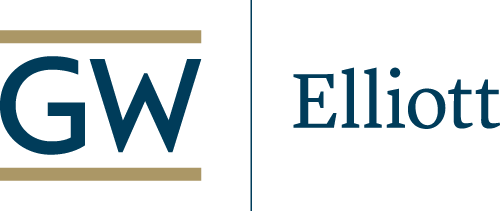
The Master of Arts program in European and Eurasian Studies (EES) at the Elliott School of International Affairs provides an interdisciplinary approach to analyzing the functional principles that define Western, Central, and Eastern Europe in conjunction with Russia and Eurasia.
M.A. European and Eurasian Studies Curriculum
Our curriculum combines required and elective courses that allow students to pursue their professional and intellectual interests. In addition, the EES program helps students develop practical skills that are essential in the professional world of international affairs.
Students who are in this program choose one of the following professional specializations:
European and Eurasian Cultures
International Economics, Political Economy, Business
International Education
International Health Policy and Programs
International Organization, Diplomacy, and Globalization
International Security Policy
Science, Technology, and International Affairs
M.A. European and Eurasian Studies Application: Fall 2019
The Masters in European and Eurasian Studies has two admission prerequisites: economics courses and foreign language proficiency.
Economics prerequisite:
Course background in economics (micro- and macroeconomics) is a prerequisite to help prepare students to complete the graduate-level economics course(s) required within the M.A. in International Affairs curriculum. Course(s) must be successfully completed through an accredited institution in:
- Introductory Microeconomics and
- Introductory Macroeconomics
-OR- - Principles of Economics
An applicant may be admitted who has not fulfilled the economics requirement; in this case, the applicant will be required to take course(s) at an accredited college/university prior to enrollment at the Elliott School.
Foreign language prerequisite:
Academic coursework in a major European language (including Russian), which will prepare students to complete the program’s language requirement*, must be shown at the time of application. This can be demonstrated by
- Study that is equal to four semesters of university-level coursework or equivalent.
- Completion of formal language training as part of employment (ex. Peace Corps, JET, etc.).
- Growing up in a household where the language is spoken.
Meeting the Language Requirement: In the case that you cannot show language proficiency via coursework, applicants may indicate native proficiency or by having a professor or tutor indicate in writing how many semesters of coursework your training is equivalent to. Alternately, you may also consider submitting a letter from your employer, providing information and confirming completion of formal language training programs that you’ve participated in. Please note that in some cases, admissions may require additional supporting documentation not listed above.
*Students need to have a strong foundation in a foreign language at the time of application and before enrolling, to be successful in completing the language requirement during the program.
Application Tips
Review all Application Requirements. The more knowledge you have about the application process, the more successful you will be as an applicant. Click here to start your application!
1. Upload your documents in PDF format in the correct orientation. Please don’t upload sideways or upside down transcripts, be sure all pages appear upright after uploading to your application. Unofficial transcripts are accepted, but please do not upload certified, encrypted, or password-protected files or files in.png, .jpeg, or .html format.
2. Understand the requirements of the program in which you are interested in applying for. Save yourself from spending $80 on an application for a program you’re not eligible to apply to by looking for the “Prerequisites” section of each program page.
3. Make sure your transcripts have all the necessary info. We accept official and unofficial transcript uploads for the graduate application. All transcripts must include:
- The name of the institution,
- All coursework (name of courses),
- Grades for each course,
- Transcript legend/grading scale, and
- Proof of earned degrees from each institution you’ve attended (Degree Conferral).
More info on transcript requirements, including requirements on transcripts from foreign institutions, can be found on our website under the “Transcripts” tab.
4. Submit your fee waiver request early. Fee waivers take 1-2 business days to be reviewed and can only be approved at the time of application. If an applicant submits an application and pays the fee, without selecting the fee waiver payment method, the fee cannot be refunded. Check our website for more info under the “Application/Fee” tab.
5. Read the emails our office sends you. Often there are follow up questions that are answered in the email or it may contain other important information relevant to your application.
6. Elliott is spelled with two L’s and two T’s!!!
7. All Elliott School graduate programs are test optional. This means that GRE scores are not required as part of the application to any of our graduate programs.
8. There are 2 deadlines for the fall 2019 application cycle: January 7th if you want to be considered for funding and February 1 to be considered for admission only. Applications submitted after January 7th are not eligible to be considered for funding!
Still have questions? Let us know!
The Office of Graduate Admissions
1957 E. St NW, Suite 301
Washington, D.C. 20052
202-994-7050
esiagrad@gwu.edu
